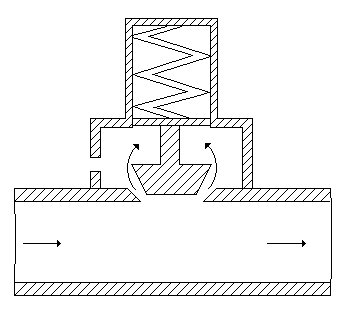Civil Engineering :: Water Supply Engineering
-
The bacterias which require free oxygen for their survival, are called
-
Maximum threshold number permitted for indicating the odour of public water supplies, is
-
45 litres of water per person per day, is provided in
-
Turbidity of water may be caused due to
-
Pick up the correct statement from the following :
-
The maximum pressure to which cast iron pipes may be subjected to, is
-
The type of pipe commonly used in water supply distribution schemes, is
-
The valve shown in the below figure, is generally known as

-
The population of a city in 2000 is 50, 000. The average per decade of the previous records of population is 5000 and average percentage per decade is 20%. The population of the city based on geometrical increase method, in the year 2020 will be


 Whatsapp
Whatsapp
 Facebook
Facebook

